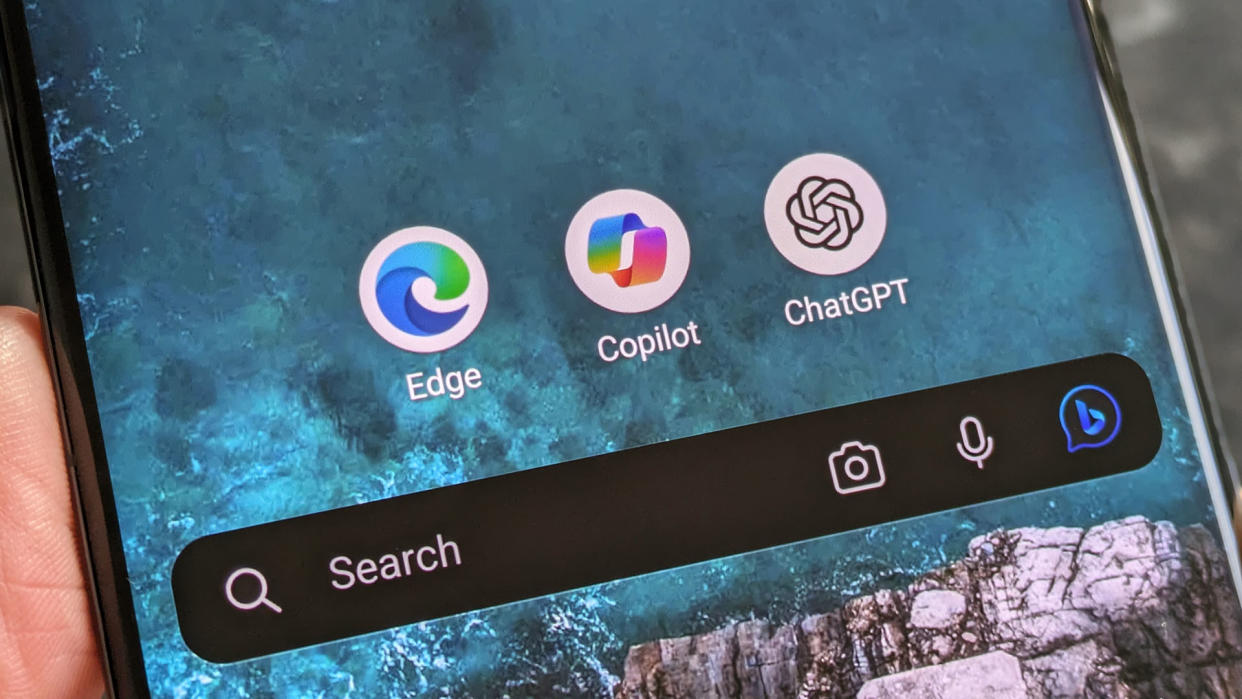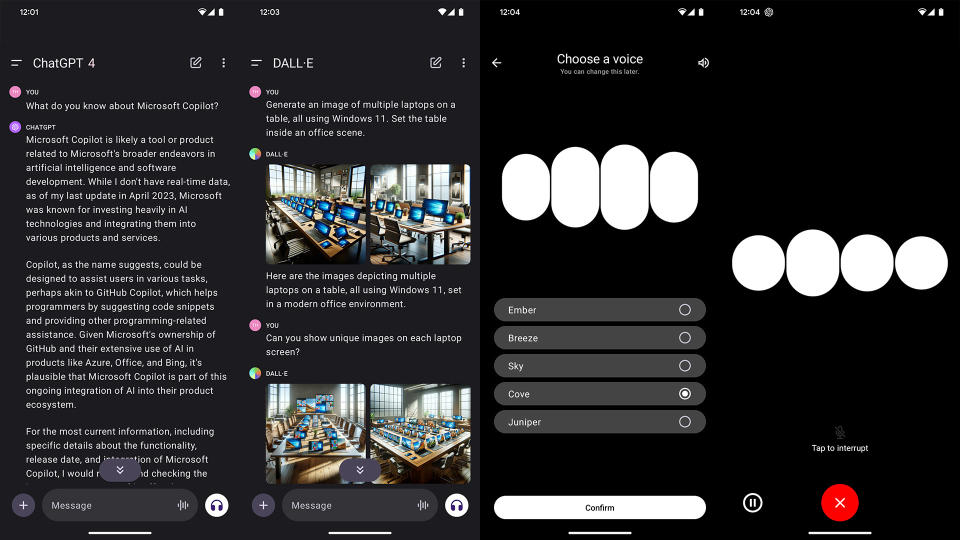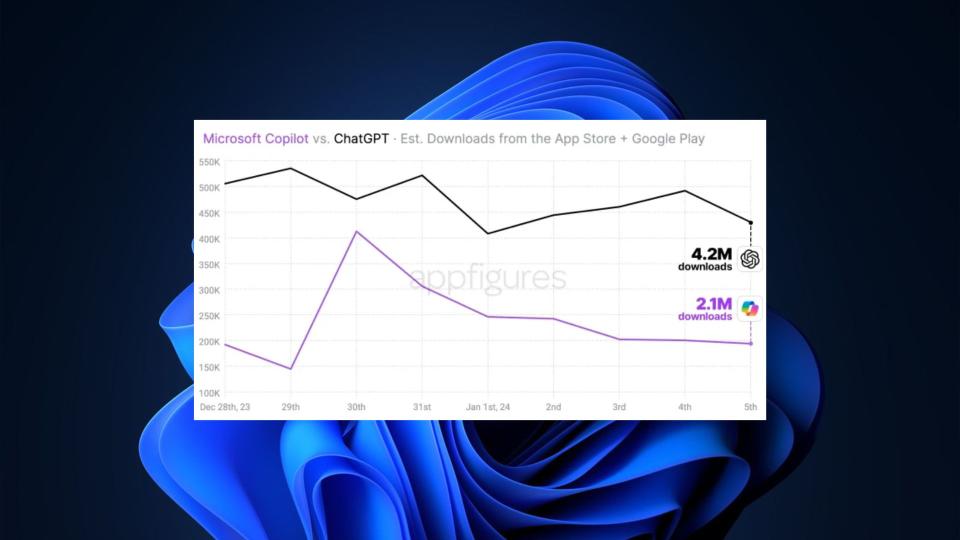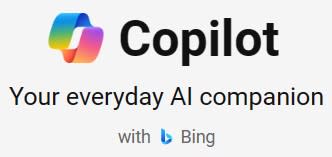OpenAI's ChatGPT reigns over Microsoft Copilot on mobile, even with free access to DALL-E 3 and GPT-4

What you need to know
Despite Microsoft unveiling its dedicated Copilot app to Android and iOS users with free access to OpenAI's latest LLM and DALL-E 3 technology, ChatGPT continues to top the ranks regarding downloads and revenue.
Microsoft Copilot may be experiencing a slow adoption rate due to poor promotion techniques that have buried its discoverability in Google Play and Apple App Store.
According to Appfigures findings, only 2.1 million downloads have been made across iOS and Android since launch.
In the past few years, generative AI has gained much traction. 2023 was exceptional, especially with huge players in the industry like OpenAI and Microsoft betting big on the technology. As a result, the emergence of AI-powered chatbots like Microsoft Copilot and ChatGPT has seemingly gone high.
Microsoft has doubled its efforts to integrate AI across most of its products and services, which now ship with a "Copilot" system to enhance their user experience. Microsoft Copilot (formerly Bing Chat) uses the same technology as OpenAI's ChatGPT. As such, both chatbots are quite similar across the board, though there are subtle differences, too.
Right off the bat, ChatGPT ships with more powerful integrations and plugins. On the other hand, Microsoft Copilot ships with a cap that limits the user to 4,000 characters per chat. While the platform has undergone many changes since it launched in February last year, Microsoft recently shipped the Copilot app to iOS and Android users for free.
The app ships DALL-E 3 technology and OpenAI's GPT-4 model. Interestingly, ChatGPT also uses the same language model. Was this a tactical move by Microsoft to get users to transition from ChatGPT to Microsoft Copilot? Your guess is as good as mine, but the move is rather tactical.
ChatGPT is practically Microsoft Copilot, but with a voice mode feature that allows you to talk back and forth with the AI assistant.
Microsoft is providing users access to a wide array of features also available in OpenAI's AI-powered chatbot, ChatGPT. However, the main difference is that the company is making them available to users free of charge. Unlike Microsoft, OpenAI has buried most of ChatGPT's important and useful features behind a $20 subscription.
All that glitter isn't ChatGPT

With this information in mind, the assumption would be that most users would transition to Microsoft Copilot, predominantly because it ships with practically all the features available in ChatGPT. What's more, users won't be required to make a $20 monthly subscription to access these features.
However, this isn't the case. According to a new report by App Store intelligence provider Appfigures, Microsoft launching the Copilot app for iOS and Android users hasn't impacted ChatGPT'S revenue or installs.
The folks over at TechCrunch majorly attribute Microsoft Copilot's slow adoption to poor promotion practices coupled with a subtle launch. Microsoft failed to use Search Ads to boost the app's discoverability on the App Store and Google Play Store.
Per Appfigures' report, a total of 2.1 million users had downloaded the Copilot app across iOS and Android by January 5, 2023. 59% of the downloads are attributed to Android users, while 41% go to iOS users.

Likewise, the report also indicates that ChatGPT downloads have significantly decreased compared to when it first launched, hitting 500,000 downloads in just a few days. This can be attributed to several issues, including reports that it's getting dumber, loss of interest by users, and a rumor that OpenAI is on the verge of bankruptcy due to the high-cost implication of running a chatbot.
Though ChatGPT downloads have taken a hit, it continues to enjoy a broader user base compared to Microsoft Copilot, as its downloads have seemingly stagnated. While speaking to TechCrunch, Appfigures cited it's doubtful that Copilot's quiet launch has a direct impact that is negatively affecting ChatGPT downloads.
A recurring trend? Maybe

OpenAI's Sam Altman recently celebrated ChatGPT's first birthday by recounting some of its successes, including a whopping $30 million in revenue for its mobile apps. To this end, it's unclear what moves Microsoft is making to remedy the situation.
In August 2023, a new report cited that Bing's market share is stagnant despite Microsoft's multi-billion investment in OpenAI's technology. Microsoft rubbished the findings, stating that the "third-party" findings are inaccurate and don't reflect the actual figures. The report also indicated that Bing's usage sky-rocketed to 101.7 million during Microsoft Copilot's launch in February.
This clearly indicates that AI remains a hot topic and interest among users. Perhaps Microsoft has some tricks up its sleeve that will help turn things around for the Copilot app on mobile.
Which one do you prefer, Microsoft Copilot or ChatGPT? Let us know why in the comments.

Microsoft Copilot| Apple App Store | Google Play Store
Microsoft's Copilot app is now available for iOS and Android users. It ships with a ton of features, including the capability to generate answers to queries, draft emails, and summarize text. You can also generate images using the tool by leveraging its DALL-E 3 technology. It also ships with OpenAI's latest LLM, GPT-4, and you can access all these for free.View Deal

